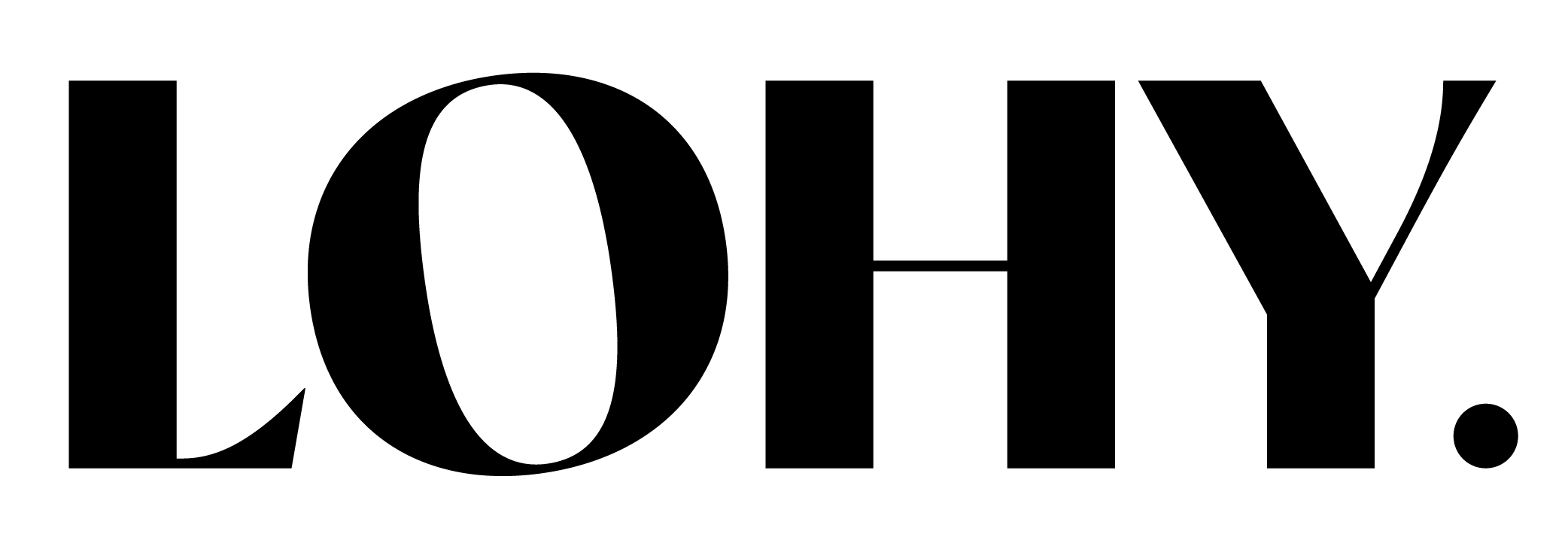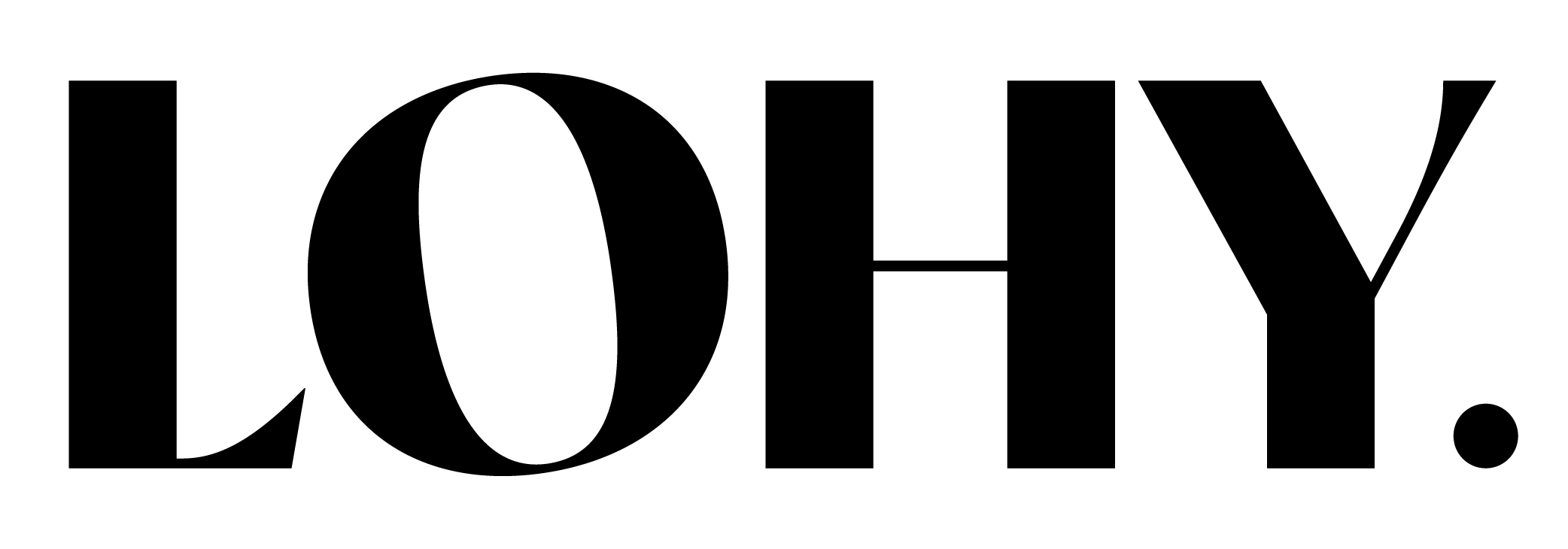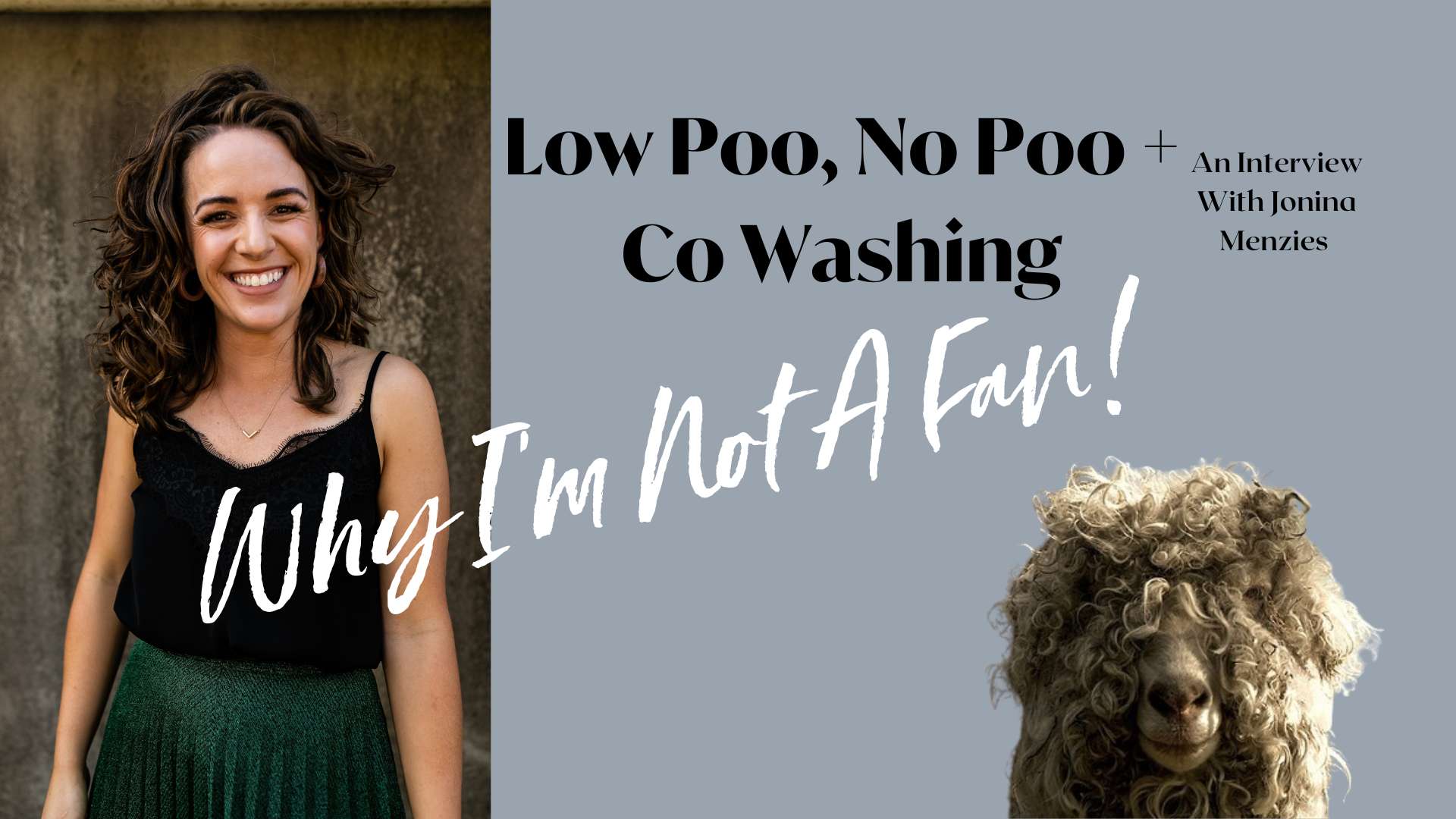There is A LOT of controversy out there on the No poo, Low poo and Co-washing methods, especially when beginning a Curly Girl Journey.
And even though these methods may work for some, truth be told we think they’re just a bit… gross!
To weigh in, we’ve asked Jonina Menzies from LOHY. for her thoughts on the topic.
Jonina has worked in the hairdressing industry for over 15 years, she owns a successful salon on the South Coast specialising in curls, and is the founder of LOHY. Curl Products. We reckon she knows what's what!

Embrace Cleansing With Curly-Approved Products
There are loads of techniques and products out there claiming to be the best, and designed to be curly approved. Sadly, most over the counter products claiming to be “curl friendly” are just not. They're loaded with SLS’s, silicones and drying agents, and while they promise results, they’re only causing more damage to your hair.
There's also a lot of methods out there claiming to be “the one” when simply put, your hair journey is unique to your hair type, and not every method you try will give you the results you want.
Before we dive into why some of these methods aren't our favourite, let's first explore the differences between the Co-wash, Low Poo and No Poo techniques. Despite the hype surrounding these methods, at LOHY., we prefer cleansing and washing your hair with curly-approved products.
What's The Fuss About Ingredients?
In today's health-conscious world, more people are scrutinising the ingredients in their hair care products. The questions, "Is this product organic?" and "Is it toxic?" are common. However, not knowing a component doesn't automatically make it bad, and familiarity doesn't necessarily mean it's natural or safe. This misunderstanding has led many to explore alternative hair washing methods like Low Poo, No Poo, and Co-Washing, which promise gentler care for your hair.
The Foam Myth
It's no secret that foam has become synonymous with cleanliness.
We associate bubbly foam with effective cleaning, whether it's in the shower, face washes, or hand soaps.
The thing is, foam is often produced by sulphates such as Sodium Lauryl Sulfate (SLS) and Sodium Laureth Sulfate (SLES), which are known for their aggressive nature. And a pretty big No-No in the curly girl method. While SLS’s help to create the satisfying foam we love, they can strip our hair of its natural oils, leading to dryness and damage.
This is why many people (particularly those with curls) are turning away from traditional (and cheaper) shampoos in favour of gentler alternatives. Thankfully, there are now shampoos and conditioners that are gentle on your hair, free of sulphates AND leave your hair hydrated and clean.
Low Poo: A Gentle Cleanse
Low Poo is a technique that involves using shampoos free of harsh sulphates, insoluble silicones, and petroleum derivatives. These ingredients can strip your hair of its natural protection, leaving it vulnerable and dry. By opting for Low Poo products, you can cleanse your hair without sacrificing its health.
Our advice is out of the three options; co-wash, no poo and low poo, if you’re wanting to avoid shampoo, this is a good compromise. Look for shampoos that prioritise natural ingredients and avoid harmful additives but still give your hair the wash it needs.
No Poo: A Radical Approach with no benefits.
No Poo takes things a step further by eliminating shampoo altogether. Instead, it relies on natural ingredients without insoluble silicones and petrolatum (petroleum) in their composition. Baking soda and apple cider vinegar are often used to cleanse. Sounds more like something you would use on your oven than your hair, right?
Some swear by this method but it’s not without controversy. The results can vary widely, and the method often requires a significant adjustment period. This technique is particularly popular among those with Type 2 Wavy and Type 3 Curly hair, who often find traditional shampoos too harsh, however it seems like they're trading cleanliness for fragile damaged hair if you ask us.
Co-Wash: Conditioner-Only
Co-Washing, short for "conditioner washing", involves using conditioners to cleanse the hair.
Let us be clear- conditioner is NOT a cleanser. It cannot clean your hair.
This method is often associated with the No Poo technique as it also avoids traditional shampoos. The difference is that you use conditioner like you would shampoo. You still apply, scrub and rinse your hair, however the key difference lies in the result.
Your hair will feel hydrated, and silky because you’ve conditioned it- but it's not clean. It’s a temporary solution and through the day your hair will end up limp, weighty and most likely greasy.
To co-wash effectively, you'll need to use conditioners free of sulphates, petrolatum (petroleum), mineral oils, and silicones. The goal is to maintain your hair's natural oils and hydration.
If you’re going to try this method, (and you do know full well that we don't recommend it) SCRUB LIKE YOUR LIFE DEPENDS ON IT!

REAL TALK An Interview With Jonina
Jonina’s Take - Stick To Cleansing With Curly-Approved Products
While Low Poo, No Poo, and Co-Washing have their merits, at LOHY. we believe in the importance of proper cleansing with products designed specifically for curly hair. Curly-approved products are formulated to clean without stripping away essential moisture, maintaining the health and vibrancy of your curls. By choosing products that respect the natural structure of curly hair, you can enjoy clean, beautiful hair without the guesswork and potential pitfalls of alternative methods.
We’ve asked an Industry professional, curly expert and someone who literally deals with textured hair daily why she is not a fan of the above methods.
- "Jonina, there is a lot of hype about this. We are dying to know what your thoughts are on the methods - Low-poo, No-poo and Co-washing".
Jonina: To be honest, I am anti Low-poo, No-poo, Co-washing in anyone under the age of about 50!
- "50! Okay, why is that?"
Jonina: The reason is, the body is still excreting natural sebum at that point. So, If you don't get a thorough enough cleanse, there is still a barrier for your hair to absorb hydration. In the salon, we often hear people say things like - “I don't want to take all the moisture, nourishment and oils out of my hair because it makes my hair sit better”.
What they're actually doing is creating a barrier for the hydration to fully penetrate the hair strands. It’s quite simple, if you don't cleanse your hair properly, with a cleanser or a shampoo, (or a “low poo”), you’re actually blocking any hydration from being absorbed and nourishing the cortex of the hair.
- "So this method is actually quite bad for your hair?"
Jonina: Yes! It really is. Although the hair strands (when dirty or co-washed) might feel weighed down, and “sit better” when styled, when they're not washed thoroughly they aren’t absorbing any hydration (which makes curly hair healthy!!) this just cannot be good for it. Grubby hair is not hydrated healthy hair.
Whilst clean and cleansed hair can result in fluffy flyaways that can be annoying, It’s always better in the long term for your hair to be clean. Hair that is nourished internally will always be less prone to breakage.
- "What if people still want to use this method? Any tips?"
Jonina: I do think if you're going to do it, every second time you “wash” there should be a cleanser (low poo) for the health of the scalp.
Conditioners just don’t cleanse your hair properly and that's what a co-wash is; a conditioner that you're trying to emulsify hoping it will lift off gunk and build-up.
I would recommend that, every second time you ‘wash’ you do need to use something that will sud, and lift/ remove the molecules from your scalp.
Shampoo IS the heavyweight. It lifts all of the impurities from your scalp and shampoo, like most cleansers, are the carriers for grit, oil and gunk. The suds literally pick up the impurities and are rinsed out through the bubbles.
- "A bit like washing your dishes?"

Jonina: It absolutely is! The suds help to break down the grease, food scraps and oils. This process makes our plates clean so we can eat off them again! Shampoo is exactly the same. It cleanses our scalps and hair strands so they're ready for the next lot of hydration and styling products.
You know when you've done the dishes and you drain the sink, the next day, there are always rings where the bubbles were, and they often leave a grime-y, greasy layer? Well, that's because the suds lift and carry the grease to remove it from our dishes.
Shampoo lifts and carries the oils and impurities out of the hair and down the drain. Conditioner just can't do that!
If you are a co-washer- you need to be so diligent and detailed in making sure that your hair (and scalp) is scrubbed really well.
In my opinion, co-washing does a mediocre job of cleaning your hair and if you want gorgeous, healthy, shiny curls, you HAVE to cleanse them regularly.
- "How often do you see people in the salon who co-wash or don't use a cleanser?"
Jonina: In the salon, we have people coming in who co-wash. And honestly, they have the worst hair. The most unsightly, manky scalps we ever see. Sometimes, if they've been co washing for a long time, they have rotten flakes of skin on their scalps! No joke, it smells foul and it's just so difficult to look after. Sadly, the result of not washing is really poor scalp health and long term damage to their hair because their scalps just can't breathe.
- "Any final thoughts?"
Jonina: If you are a PRO co-washer/no-pooer and you feel like that method works well for you, my professional advice is - become really meticulous and good at your co-washing. And every so often throw in a good deep clean for good measure.
The best hair care routine is one that keeps your curls healthy, hydrated, and happy. While Low Poo, No Poo, and Co-Washing offer interesting alternatives, nothing beats the simplicity and effectiveness of cleansing your hair with the right products. Remember, your hair deserves the best, and with the right curly-approved products, you can give it just that.
Love & Hydration (and a lil bit of shampoo) xx




Rock Your Summer Curls With These 7 Wash-And-Go Styles!
Extra Care For Your Curls During Party Season